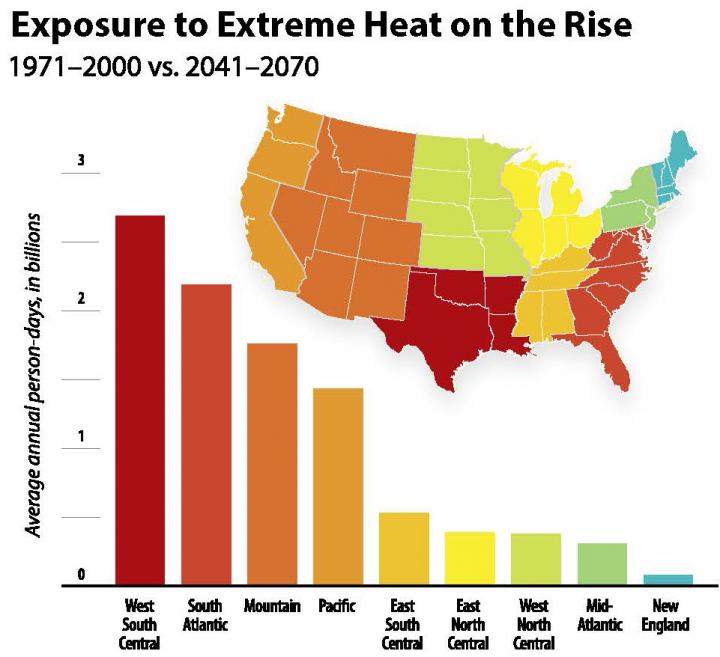LONDON—Warming in the Arctic—one of the fastest-warming regions on the planet—could be heightening the chances of extreme winters in Europe and the US. As the…

National Center for Atmospheric Research

BLOOMINGTON, Ind. -- Earth could contain nearly 1 trillion species, with only one-thousandth of 1 percent now identified, according to a study from biologists at…
The debate over climate change has long focused on determining attribution—whether rising greenhouse gases and global warming caused a particular storm, drought, flood, or blizzard.…

U.S. residents' exposure to extreme heat could increase four- to six-fold by mid-century, due to both a warming climate and a population that's growing especially…

Plants are one of the last bulwarks against climate change. They feed on carbon dioxide, growing faster and absorbing more of the greenhouse gas as…

For decades, the earth’s oceans have soaked up more than nine-tenths of the atmosphere’s excess heat trapped by greenhouse gas emissions. By stowing that extra energy in…